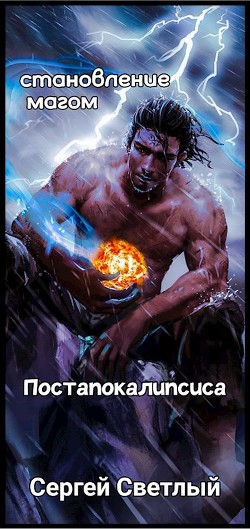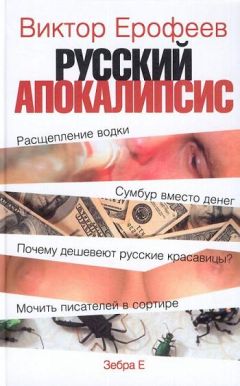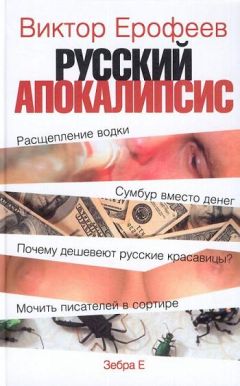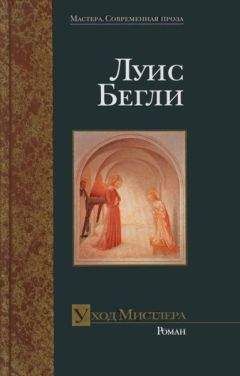Следующий апокалипсис. Искусство и наука выживания - Крис Бегли
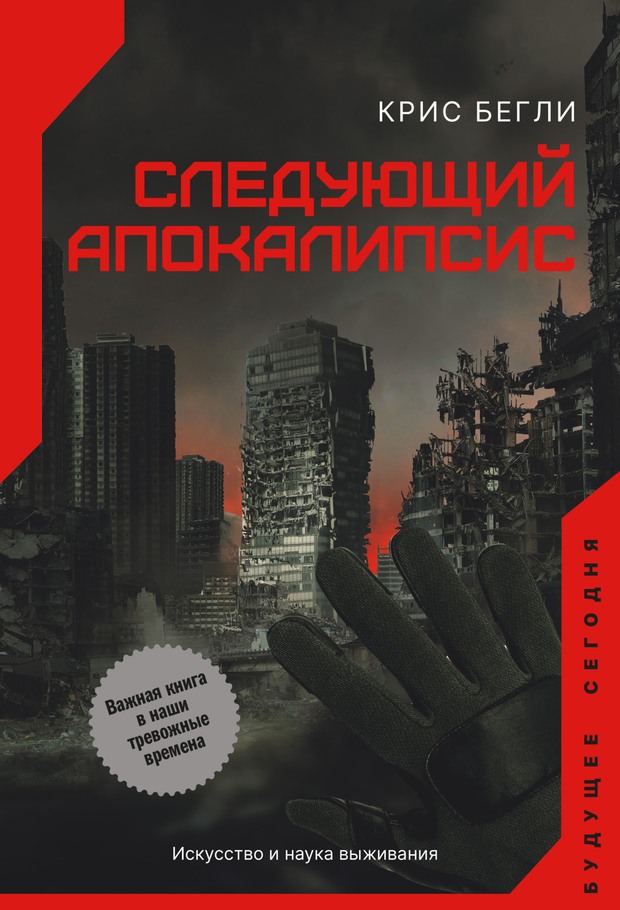
Помощь проекту
Следующий апокалипсис. Искусство и наука выживания читать книгу онлайн
47
Jerald T. Milanich and Charles Hudson, Hernando de Soto and the Indians of Florida (Gainesville: University Press of Florida, 1993).
48
Cameron B. Wesson, «De Soto (Probably) Never Slept Here: Archaeology, Memory, Myth, and Social Identity,» International Journal of Historical Archaeology 16, no. 2 (2012): 418–435.
49
John E. Worth et al., «The Discovery and Exploration of Tristán de Luna y Arellano’s 1559–1561 Settlement on Pensacola Bay,» Historical Archaeology 54, no. 2 (2020): 472–501, https://doi.org/10.1007/s41636-020-00240-w.
50
Paul E. Hoffman, «Did Coosa Decline Between 1541 and 1560?» The Florida Anthropologist 50, no. 1 (March 1997).
51
Paul Kelton, «Avoiding the Smallpox Spirits: Colonial Epidemics and Southeastern Indian Survival,» Ethnohistory 51, no. 1 (Winter 2004).
52
Marvin T. Smith, «Understanding the Protohistoric Period in the Southeast,» Revista de Archaeologia Americana no. 23, Arqueologia Historica (2005): 215–229.
53
Brenda J. Baker et al., «The Origin and Antiquity of Syphilis: Paleopathological Diagnosis and Interpretation [and Comments and Reply],» Current Anthropology 29, no. 5 (1988): 703–737.
54
Alfred W. Crosby, The Columbian Exchange: Biological and Cultural Consequences of 1492 (Westport, CT: Praeger Publishers, 2003); William M. Denevan, «Introduction,» in The Native Population of the Americas in 1492, ed. William M. Denevan (Madison: University of Wisconsin Press, 1976), 1–12; Henry F. Dobyns, «Disease Transfer at Contact,» Annual Review of Anthropology 22 (1993): 273–291; and Nathan Nunn and Nancy Qian, «The Columbian Exchange: A History of Disease, Food, and Ideas,» Journal of Economic Perspectives 24, no. 2 (2010): 163–188.
55
A. Gwynn Henderson and David Pollack, «Chapter 17: Kentucky,» in Native America: A State-by-State Historical Encyclopedia, vol. 1, ed. Daniel S. Murphree (Santa Barbara, CA: Greenwood Press, 2012), 393–440.
56
Henderson and Pollack, «Kentucky,» 415.
57
«Malaria in Kentucky: Prevalence and Geographic Distribution,» Public Health Reports (1896–1970) 32, no. 31 (1917): 1215–1221, www.jstor.org/stable/4574589.
58
An entire edited volume is dedicated to just this type of contextualization. See Geoffrey E. Braswell, ed., The Maya and Their Central American Neighbors: Settlement Patterns, Architecture, Hieroglyphic Texts, and Ceramics (New York: Routledge/Taylor & Francis Group, 2014).
59
Christopher Begley, «Elite Power Strategies and External Connections in Ancient Eastern Honduras» (PhD diss., University of Chicago, 1999).
60
Arnaldo Momigliano, «La Caduta Senza Rumore Di Un Impero Nel 476 D. C.,» Annali Della Scuola Normale Superiore Di Pisa. Classe Di Lettere E Filosofia 3, no. 2 (1973): 397–418.
61
Synesius of Cyrene, The Letters of Synesius of Cyrene, trans. Augustine Fitzgerald (Oxford, UK: Oxford University Press, 1926).
62
Alexander Koch et al., «Earth System Impacts of the European Arrival and Great Dying in the Americas After 1492,» Quaternary Science Reviews 207 (March 2019): 13–36.
63
Dahlia Schweitzer, Going Viral: Zombies, Viruses, and the End of the World (New Brunswick: Rutgers University Press, 2018).
64
S. N. Eisenstadt, «Beyond Collapse,» in The Collapse of Ancient States and Civilizations, eds. N. Yoffee and G. L. Cowgill (Tucson: University of Arizona Press, 1988), 236–243.
65
Joseph A. Tainter, The Collapse of Complex Societies, New Studies in Archaeology (Cambridge, UK: Cambridge University Press, 1988).
66
Patricia Ann McAnany and Norman Yoffee, eds., Questioning Collapse: Human Resilience, Ecological Vulnerability, and the Aftermath of Empire (New York: Cambridge University Press, 2010).
67
Guy D. Middleton, «Nothing Lasts Forever: Environmental Discourses on the Collapse of Past Societies,» Journal of Archaeological Research 20 (2012): 257–307.
68
Gwendolyn Foster, Hoarders, Doomsday Preppers, and the Culture of the Apocalypse (New York: Palgrave Macmillan, 2014).
69
Bianca Spriggs used this term during an interview for my radio segment Future Tense, available at https://esweku.org/track/2367716/future-tense-with-chris-begley.
70
Patricia Clifford, «Why Did So Few Novels Tackle the 1918 Pandemic?» Smithsonian, November 2017, www.smithsonianmag.com/arts-culture/flu-novels-great-pandemic-180965205.
71
Roxanne Dunbar-Ortiz, Loaded: A Disarming History of the Second Amendment (San Francisco: City Lights Publishers, 2018), chapter 5.
72
Dunbar-Ortiz, Loaded, chapter 5.
73
Brian Aldiss, Billion Year Spree: The True History of Science Fiction (New York: Doubleday, 1973).
74
Casey Ryan Kelly, «Man-pocalypse: Doomsday Preppers and the Rituals of Apocalyptic Manhood,» Text and Performance Quarterly 36, nos. 2–3 (2016): 95–114, http://dx.doi.org/10.1080/10462937.2016.1158415.
75
Alfred Kidder, «Introduction,» in Prehistoric Southwesterners from Basketmaker to Pueblo, ed. C. Amsden (Los Angeles: Southwest Museum, 1949), xi — xiv.
76
This is discussed in many journalistic articles, such as: Sable Aradia, «Sexism in the Apocalypse,» Between the Shadows blog, September 1, 2017, www.patheos.com/blogs/betweentheshadows/2017/09/sexism-in-the-apocalypse/.
77
K. Sugg, «The Walking Dead: Late Liberalism and Masculine Subjection in Apocalypse Fictions,» Journal of American Studies 49, no. 4 (2015): 793–811, https://doi.org/10.1017/S0021875815001723.
78
Christian Ingraham, «Spike in Violent Crime Follows Rise in Gun-Buying During Social Upheaval,» Washington Post, July 15, 2020, www.washingtonpost.com/business/2020/07/15/gun-sales-jump-protests-coronavirus/.
79
Susan Sontag, «The Imagination of Disaster,» in Against Interpretation, and Other Essays (New York: Farrar, Straus & Giroux, 1966), 157.
80
Sontag, «The Imagination of Disaster,» 158.
81
Congressional Record, 111th Congress, First Session, «On the Endorsement of One Second After by William R. Fortschen,» Extension of Remarks section, vol. 155, no. 70 (May 7, 2009), www.congress.gov/congressional-record/2009/5/7/extensions-of-remarks-section/article/E1103-1.
82
Ronald Reagan, White House Diaries, entry October 10, 1983, online at www.reaganfoundation.org/ronald-reagan/white-house-diaries/diary-entry-10101983/. Reagan’s remarks are discussed in Matthew Gault, «This TV Movie About Nuclear War Depressed Ronald Reagan,» War Is Boring blog, Medium.com, 2015, https://medium.com/war-is-boring/this-tv-movie-about-nuclear-war-depressed-ronald-reagan-fb4c25a50045.
83
